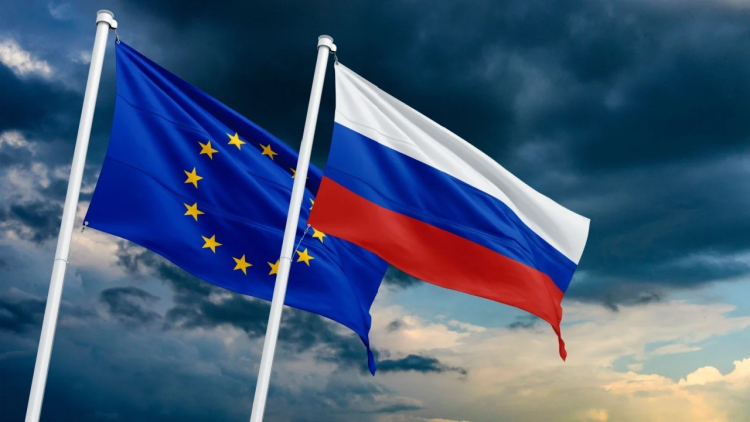EU Seizure of Russia's Assets Could Erode Euro's Reserve Status
EU’s seizure of Russia’s frozen assets could erode trust in financial systems, destabilize the euro, and spark severe geopolitical tensions. Learn about the risks.

Seizing Russia’s Frozen Assets: A Risky Move
Seizing Russia’s frozen assets could lead to catastrophic consequences, including eroding trust in global financial systems, destabilizing the euro, and provoking severe retaliatory measures. This alarming possibility has been highlighted by Euroclear Ltd., the Belgian clearinghouse responsible for holding the majority of Russia’s frozen central bank assets.
Euroclear's Warning on Asset Confiscation
Valerie Urbain, CEO of Euroclear, recently cautioned about the significant risks associated with confiscating Russia’s frozen assets to support Ukraine. In an interview with Bloomberg, Urbain stressed:
"We cannot be in the situation whereby the assets have been seized, but, in a couple of years, Russia comes and knocks at the door and says, ‘I want to recoup my securities,’ while the securities assets would have been gone."
She further emphasized the need to address liabilities comprehensively if asset confiscation becomes the chosen course of action. According to Urbain, seizing assets without proper measures could leave the EU vulnerable to future claims and legal challenges.
Current Usage of Frozen Assets
Thus far, the EU has utilized profits generated from Russia’s frozen assets to provide aid to Ukraine. This includes contributions to a Group of Seven (G7) initiative supporting a €50 billion (approximately $52.49 billion) loan package for Kyiv. However, discussions about directly confiscating the €180 billion of Russian assets held by Euroclear have resurfaced. Concerns about diminished U.S. support for Ukraine under a potential Donald Trump administration add urgency to these debates.
Russia’s Response and Geopolitical Implications
Moscow has fiercely criticized Western nations for leveraging frozen Russian assets, labeling the actions as theft and violations of international norms. Russia warns that such moves risk exacerbating geopolitical tensions. Furthermore, the Kremlin has hinted at retaliatory measures, including the potential nationalization of Western-owned assets in Russia. These developments underscore the escalating confrontation between Russia and the West, with frozen assets emerging as a key flashpoint.
Threat to the Euro’s Reserve Status
One of the most significant risks highlighted by Urbain is the potential erosion of the euro’s status as a global reserve currency. She explained:
"It is the risk of creating a precedent, because the trust that you have had for decades in the system, suddenly it’s been questioned."
Such a move could undermine the confidence of central banks worldwide, including those in China and the Middle East, who may view the confiscation as a breach of long-standing legal and financial frameworks.
Shifting Market Dynamics
While Euroclear has not observed immediate changes in transaction volumes, Urbain noted increased financial activity in Asian and Middle Eastern markets. She cautioned that while the risks may not pose an immediate threat, confiscating assets could introduce long-term uncertainties. “With the landscape as it is, it’s not a short-term threat. But if there is a confiscation of assets, everything is up in the air,” she concluded.
Conclusion
The potential seizure of Russia’s frozen assets presents a complex web of financial, legal, and geopolitical risks. As debates continue, the EU faces mounting pressure to carefully weigh the consequences of its decisions, ensuring that short-term benefits do not lead to long-term instability.
What's Your Reaction?















